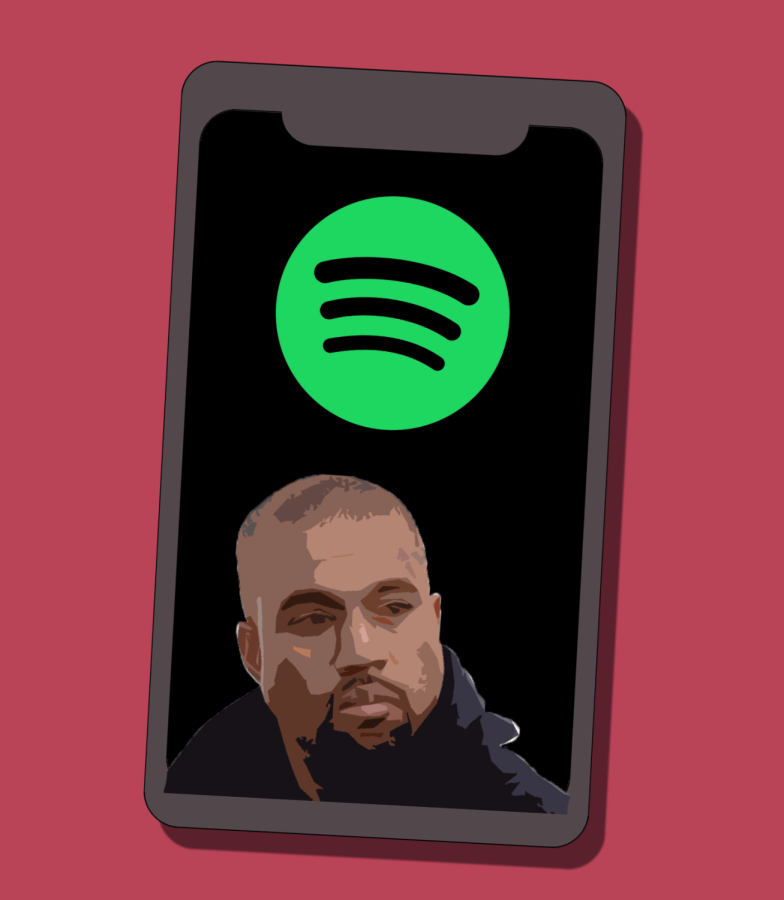Opinion | Separating art from artist is impossible, irresponsible
January 31, 2023
Ever since Kanye took to social media with multiple antisemitic remarks that even went as far as to call Hitler especially valuable, his support from fans took a hit. After losing followers and money, as well as getting dropped by brands such as Adidas and Balenciaga, it was alarming how many people were proudly reposting their Spotify Wrapped with his name in the number one spot.
As tempting as it might be to pop in headphones and play “Graduation” on repeat because of the early 2000s nostalgia, it is only rewarding Kanye with money and fame.
Recognizing somebody is talented is one thing, but consuming an unethical person or brand’s products — in Kanye’s case, music — enables his bad behavior.
In a capitalist society, there is no way to be a completely ethical consumer. If a person wants gas in their car to get to work, they have to pay a company that has more than likely contributed to an oil spill. And when out shopping at the mall, almost every affordable clothing brand uses fast fashion.
But when it comes to music, unethical artists are easy to avoid. People can actively choose whether or not to play a song or add it to their playlist.
Get The Daily Illini in your inbox!
Some argue that the art people create is separate from who they are as a person, but every time a song or movie is streamed, money lands in the artist’s pocket and their influence continues to grow. People like Kanye West will continue to have a platform for harmful comments as long as consumers engage with their art. Every listen fuels Kanye’s career and keeps him relevant.
Influential people like Kanye are powerful enough to inspire fringe movements, which is exactly what happened after his antisemitic comments. In Los Angeles, a hate group held a sign over a freeway saying “Honk if you know Kanye is right about the Jews.”
When prominent figures in the media spread hateful messages, it encourages others to participate. While these hate groups would have existed whether Kanye said antisemitic things or not, his large platform gave these groups an easy in. Kanye said it, so they can too — it is a lasting domino effect.
When people convince themselves it is okay to separate art from artists, they are finding a way around what they would usually find to be immoral by rationalizing, for example, that Kanye is not “Graduation.”
People who use the rationale that the art and the artist are separate entities fail to realize that art cannot exist without the artist; the creator and the product are interconnected and always will be.
It is up to everyone to decide where they draw the line, but just as publicly supporting a politician subjects people to judgment, so should publicly supporting a controversial artist.
Accountability has been a big focus among Generation Z. Especially when the Black Lives Matter movement caught the attention of the media in 2020, many young people held themselves accountable and educated themselves on history and racial inequities.
However, they need to bring that same energy to holding artists accountable. When fans are the reason celebrities have the money and fame they have today, they are also responsible for disconnecting themselves from their favorite artists’ harmful platforms.
Megan is a freshman in Media.







